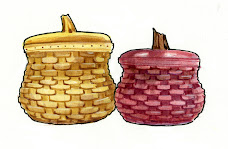Friday, July 27, 2007
All about Wikis
The second part of this exercise was to add information on the OULibraries Wiki. I was determined to complete this exercise on my own, especially when I viewed the blogs already linked (I doubted ability of some of my colleagues). I figured if they could get this assignment done sucessfully, then so could I. And I did. It's nice to be able to link to another webpage without having the lengthy URL. This is very useful.
Tuesday, July 24, 2007
Musings on Web 2.0
- Away from "icebergs"
- Into a new world of librarianship
- To more powerful ways to cooperate
- To better bibliographic services
- To a temporary place in time
I thought it ironic that these perspectives, while updated, sounded a bit like Ranganathan's five laws of library science that have remained the centerpiece of our professional values. I scrambled to find my old textbook to re-read these values and see how far from his laws we are. Far, but still within the realms of his convictions. Libraries are still dedicated to the service of people. They always will be.
Ranganathan's laws were written at the time when only a physical library was conceivable. In 1995 Michael Gorman authored "Five new laws of librarianship", (American Libraries 26, 1995:784-785). These laws work well for the physical and virtual library. So much in fact, that OCLC's 5 perspectives seem to further expand on Gorman's ideas. One such "Gormanism" is to "respect all forms by which knowledge is communicated". Today's library has many packages of knowledge, and each package is its own life-form. Library workers should not fear these new forms of communication, but rather embrace them to advance library service. In Anderson's manuscript, "Away from "icebergs"", he suggests we need to push away from traditional practices and attitudes, and row towards a more progressive ideal. Library patrons are expecting libraries to "keep up" with technology.
Library 2.0 is creating change within the library structure. While it's important to "collect" subjects for patron use and research, it's also important to include the patron and/or researcher in the dialogue as to what they are wanting or needing in their respective collections. This is what I find important to the future of Library 2.0: open communication with the community.
Thursday, July 19, 2007
Technorati, etc
On Technorati. There is a need to crawl all blogs in cyberspace or no one would ever find the blog that is interesting to them. If there wasn't a crawling service, no blogs would be read and bloggers would be out of business.
I like the search feature. However, I'm not going to add keywords to my blog just yet as I'm not sure I'll keep the "homework" blog up and running after this workshop is done. I may begin a new blog - with something way more interesting to read than my thoughts on homework.
To date, Technorati seems to be the most useful tool for a blogger.
Del.icio.us
I do see the benefit if using PC's in more than one place. Add bookmarks on one computer, and voila! they are retrievable on all machines. Personally, I don't log on to my home computer enough to find del.icio.us something I can't live without, but it's nice to know I have options if and when I become a geek.
Exploring Rollyo
Library Thing
Here's the link to my personal library:
http://www.librarything.com/catalog/debraorr
Image Generators
Tuesday, July 3, 2007
Finding Feeds
Making Life Simple with RSS and Newsreader
What do I like about RSS and Newsfeeds? I can add my favorite newsfeeds to my bloglines account and read only those stories that I sign up for. No more scanning the pages of The Columbus Dispatch to look for articles that are of interest. No more annoying pop-up advertisements that don't alway have the "close" button. I'm able to pick and choose.
The only drawback I see with all of this is that I now have to remember more passwords. Ugh.

